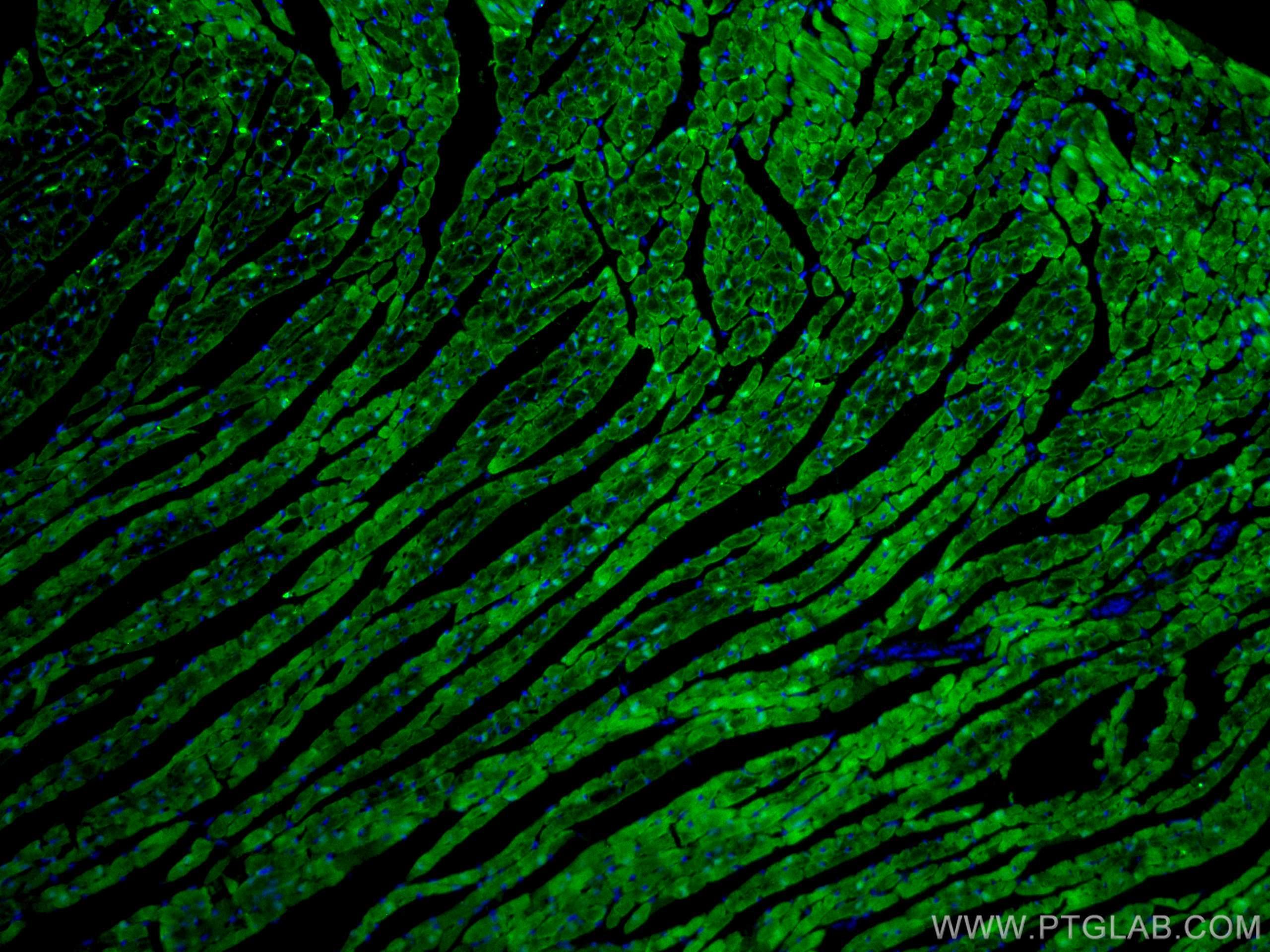Anticorps Monoclonal anti-FABP3
FABP3 Monoclonal Antibody for IF-P
Hôte / Isotype
Mouse / IgG2a
Réactivité testée
Humain, rat, souris
Applications
IF-P
Conjugaison
CoraLite® Plus 488 Fluorescent Dye
CloneNo.
2B5C1
N° de cat : CL488-60280
Synonymes
Galerie de données de validation
Applications testées
| Résultats positifs en IF-P | tissu cardiaque de souris, |
Dilution recommandée
| Application | Dilution |
|---|---|
| Immunofluorescence (IF)-P | IF-P : 1:50-1:500 |
| It is recommended that this reagent should be titrated in each testing system to obtain optimal results. | |
| Sample-dependent, check data in validation data gallery | |
Informations sur le produit
CL488-60280 cible FABP3 dans les applications de IF-P et montre une réactivité avec des échantillons Humain, rat, souris
| Réactivité | Humain, rat, souris |
| Hôte / Isotype | Mouse / IgG2a |
| Clonalité | Monoclonal |
| Type | Anticorps |
| Immunogène | FABP3 Protéine recombinante Ag21483 |
| Nom complet | fatty acid binding protein 3, muscle and heart (mammary-derived growth inhibitor) |
| Masse moléculaire calculée | 15 kDa |
| Poids moléculaire observé | 15 kDa |
| Numéro d’acquisition GenBank | BC007021 |
| Symbole du gène | FABP3 |
| Identification du gène (NCBI) | 2170 |
| Conjugaison | CoraLite® Plus 488 Fluorescent Dye |
| Excitation/Emission maxima wavelengths | 493 nm / 522 nm |
| Forme | Liquide |
| Méthode de purification | Purification par protéine A |
| Tampon de stockage | PBS with 50% glycerol, 0.05% Proclin300, 0.5% BSA |
| Conditions de stockage | Stocker à -20 °C. Éviter toute exposition à la lumière. Stable pendant un an après l'expédition. L'aliquotage n'est pas nécessaire pour le stockage à -20oC Les 20ul contiennent 0,1% de BSA. |
Informations générales
FABP3 (fatty-acid-binding protein 3), also known as heart-type FABP or mammary-derived growth inhibitor (MDGI), is a small 15-kDa cytoplasmic protein transporting fatty acids and other lipophilic substances from the cytoplasm to the nucleus. It is most ubiquitously expressed in heart and skeletal muscle.
Protocole
| Product Specific Protocols | |
|---|---|
| IF protocol for CL Plus 488 FABP3 antibody CL488-60280 | Download protocol |
| Standard Protocols | |
|---|---|
| Click here to view our Standard Protocols |


